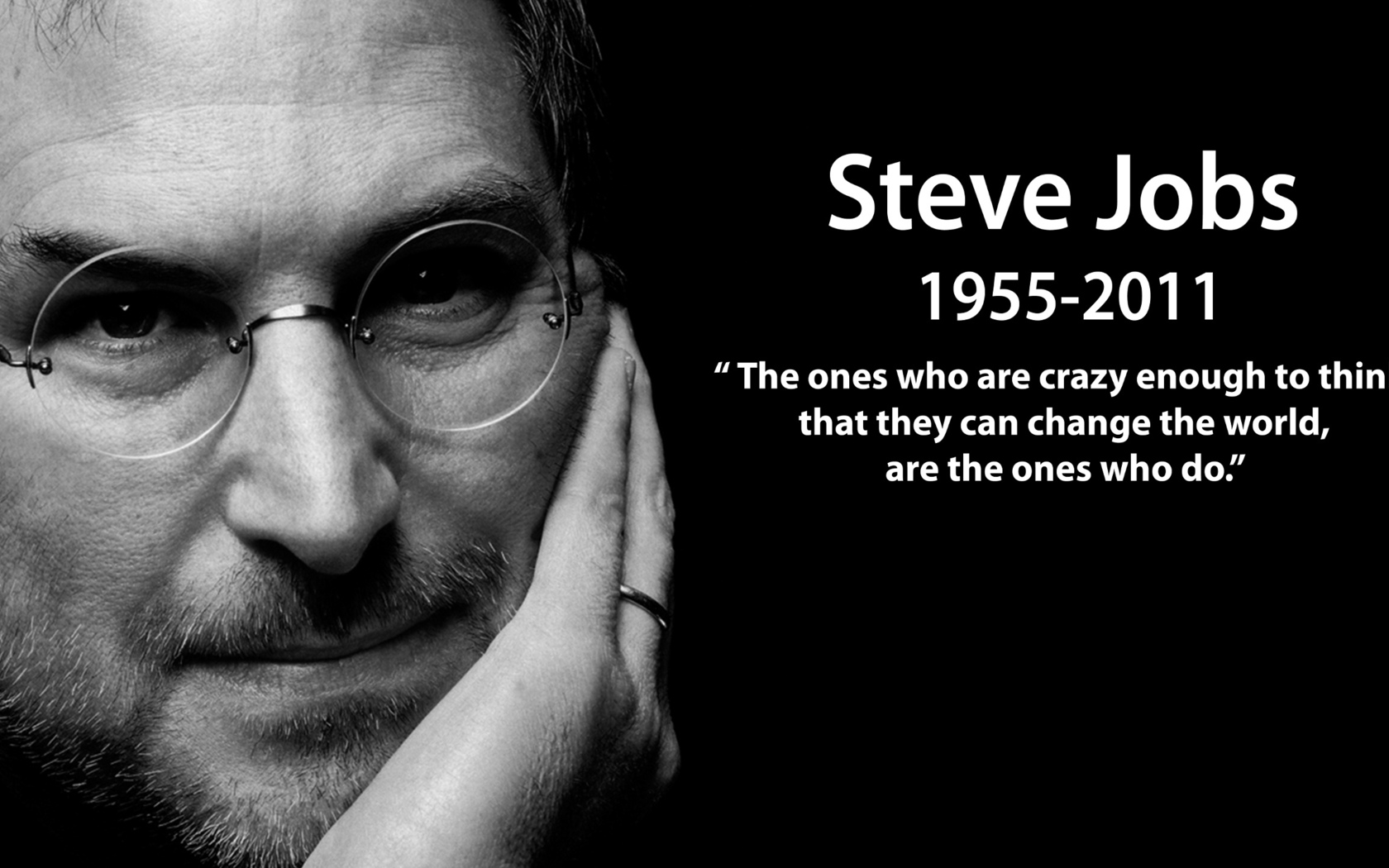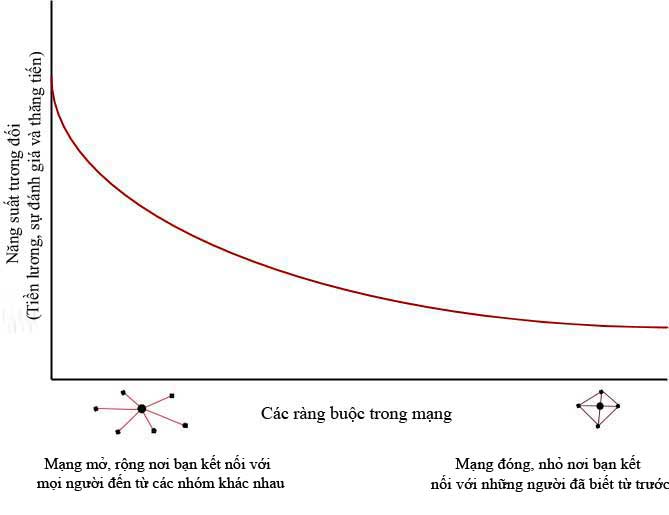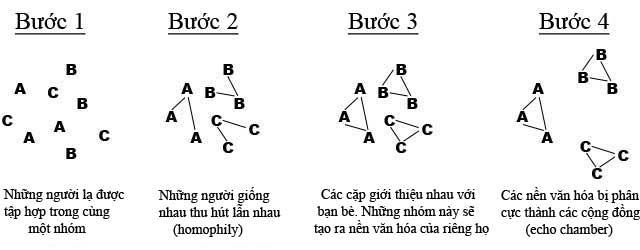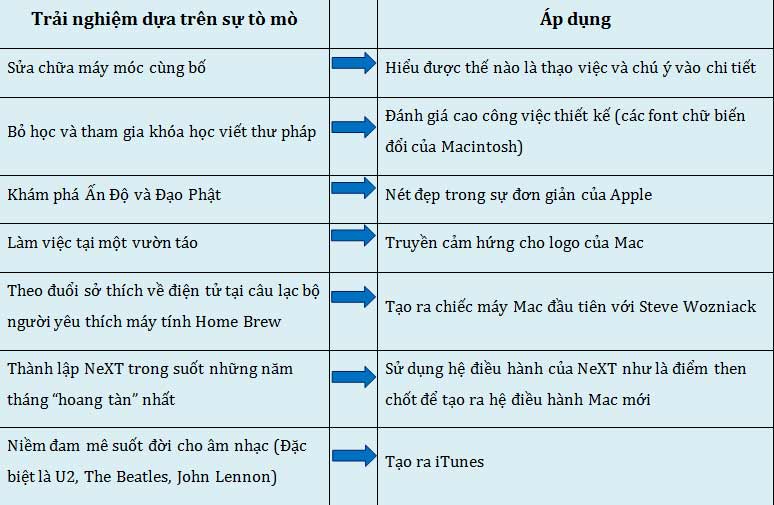Network Science and the mystery behind the success of Steve Jobs
Nearly 5 years since the death of Steve Jobs.
Since that time, books have been written and many films have been produced.
Each year, we remember the legacy Jobs has left and aim to share the secrets he used to build one of the world's largest technology companies; things like focusing on details, attracting top talent and maintaining everything to the highest standards.
We think we understand what makes Steve Jobs successful.
But in fact, we don't understand anything.
We dismiss the principles of success by assigning them with satire about their personalities.
- A question Steve Jobs asked himself every day
- The way that Steve Jobs created 'unlimited warriors' who do bosses must know
What is often overlooked is the paradoxical interplay of two of Jobs's seemingly opposing qualities: frantic concentration and curiosity are never satisfied. They are not two random strengths but the most important factors leading to other things.

Jobs's curiosity fueled his passion and helped him easily see inside things, things, conquer skills, gain value and interact with the most outstanding people. The world that helped him perfect his own skill set. Meanwhile, Jobs's focus contributes to bringing everything he has accumulated together to form a world of personal electronic devices.
Not only did I say this as someone who had read all the articles, interviews and books about Jobs's greatness.
I say this as a person who interviewed many of the world's leading Network scientists, with the goal of understanding how networks have created competitive advantage in business and career.
Simple variables explain what really makes a career successful
In December 2013, I interviewed one of the world's leading network scientists. He is Ron Burt. During the talk, he shared a chart that completely changed my understanding of success. The image below is a simplified version of that chart.

What is the point here? According to many studies that have been censored by expert councils and reputable individuals in this field, they are on an open network instead of a closed network ( simply network) as a predictor tool. The best of success in career.
In the chart above, the more in the right part - towards the closed network - and the more you listen to the same idea over and over again, the more it reaffirms what you believe. On the left-hand side of the open network, the more new ideas are explored, the more likely people will be successful than those in closed networks.
In fact, research shows that half of the predicted difference of a successful career (such as promotion, salary, recognition .) is caused by this variable.
Have you ever experienced moments of hearing something so compelling that you need to know more, more, crazy enough that you have to throw away your core beliefs to accept the idea? new there?
I used to have such moments. But in all the books that I have read about self-development, success in career, good business about Steve Jobs, this has never happened.
I wondered, "How can it be that the network structure of one's relationships becomes a strong predictor of their career success?"
- 20 most famous Steve Jobs inspirational sayings
How does closed networks affect your career?
In order to understand the power of open networks, one must first understand the impact of closed networks.
Most people spend their careers in closed networks - networks in which everyone knows each other. People often work in the same industry, one religion and one political party. In a closed network, getting things done is easier because you have built trust, you know all the short terms and hidden rules. The closed network is also very comfortable because the members have the same view of the world and contribute to solidifying your own views.
To understand why people spend most of their time in closed networks, consider what happens when a group of random strangers gets together:

David Rock - founder of the leadership institute of the Neoleadership Institute - a leading organization using neuroscience to help successful leaders explain this process as follows: We deliver problem by dividing people into two groups: (1) ingroup are people who share interests and outgroups who are out of group, different in everything. Most members belong to the outgroup group and the remaining few are in the group ingroup. This will help determine whether we care about others, support or rebut them. This process is a consequence of the history of human evolution when we are still living in small groups and strangers that we do not know are not trusted.
By understanding this process, we can begin to understand why the world is happening in its inherent way. We will understand why the Democratic Party and the Republican Party cannot pass bills that bring obvious benefits to society. We will understand why religions must go through historical conflicts and understand why we have "bubbles", crisis and transient trends.
- The truth about Steve Jobs: Is he a god or a pervert?
The incredible power and pain of open networks
People in the network open their own opportunities and challenges. Because they are part of many groups, they have unique relationships, experiences and knowledge that people in other groups do not have.
The challenge is that it can lead to a feeling of being an outsider as a result of being misunderstood and being underestimated, the cause is that only a few people understand why you think about what you do. The challenge is that it also requires an identifiable difference and world perspectives in contrast to a different point of view.
In The Matrix is also one of my most favorite films, with a main character named Neo. Neo has been placed in a whole new world. Once he entered, he could not return. He is an "outsider" in this completely new group and he is also an "outsider" in the old world who once lived. Neo had the experience that all the people he had ever met never understood. This is also the phenomenon that will happen when we join a world of new people.
On the other hand, having an open network also offers a lot of great opportunities:
- More accurate views about the world.The open network gives people the ability to acquire information from others so errors are automatically corrected.A study by Philip Tetlock has shown that people in open networks are better able to predict than people in closed networks.
- Ability to control when information is shared.Although they are not the first to hear the information, they may be the first to spread that information to other groups.As a result, they took advantage of the pioneer's advantage.
- The ability to act as an interpreter / connection between groups.They can create value by serving as intermediaries and linking two people or organizations that can help each other but often they cannot actively connect with each other.
- More breakthrough ideas.Brian Uzzi, professor of the School of Leadership and Organizational Change at Kellogg's School of Management conducted a landmark investigation when he dug 10 million academic studies in history.He conducted comparisons of their results with a series of citations (links from other research articles) they received and other articles they referenced.Finally, an impressive model has been suggested.The top-ranked studies always come with references, of which 90% are standard and 10% are non-standard (such as references from other fields).The law does not change over time and across fields.People with open networks may be easier to create combinations other than tradition.
Review the success of Steve Jobs
As a result of pursuing curiosity in many areas throughout his life, Steve Jobs developed a unique perspective, skill set and network; a view that no one in the computer industry has. He turned these no-man's advantages into one of the largest companies in the world thanks to his ability to concentrate. At Apple, Jobs also eliminates people, products and systems that do not belong to the "world-class" category.

Quite a lot of people quickly assign a few stages in Steve Jobs' life to be "lost" or "lost". However, when reviewing his life in remembrance, we will see those branches play a key role in the success of Apple's "father".
What is supposed to be Steve Jobs's "magic" or satire about his personality has become repetitive principles that we all can apply.
From this advantage, we can begin to understand the following quote in an interview with Steve Jobs at Wired in 1995:
Creativity is just connecting things. When you ask creators how they have done something, they will feel a little guilty because they don't actually make it, they just see it.
After a period of time, this seems obvious to them. That's because they can connect the experiences they have and put them together into new things. And the reason they can do that is because they have more experience or they think more about their experiences than others.
Unfortunately, experience is a rare commodity. Many people in this area have no such diversity.
So, they don't have enough dots to connect and they end up with very straightforward answers without an open perspective on the problem. The more open our understanding of human experience, the more wonderful designs we have.
- Steve Jobs has correctly predicted e-commerce since 1996
"Just be thirsty, be foolish"
During the development process of humanity, all societies including our society now create mysteries that share the same trait that is the hero's journey.
According to Joseph Campbell - creator of this term, the journey will look like this:
Everything went great. You feel normal and comfortable. After that, something happens and you change. You start to feel like an "outsider" in a living culture. You hide the different parts of yourself to get along with people but that doesn't help. You feel a voice calling you out to fulfill your wishes, but that action is not really certain. So, at first, you have a little hesitation.
Finally, you decide to be reckless. You experience countless difficulties when learning how to control the new world. Finally, you overcome those challenges. After that, you return to the culture - where you were born and create a tremendous influence by sharing the insights you have learned for everyone.
The mystery of the hero's journey is marked in everything from our classic social movies (such as Star Wars - Star Wars ) to heroes they I praise (such as Steve Jobs) because it has hit hard on the most critical points in human history.
The field of network science has shown us two things: (1) The hero's journey is a blueprint for creating career success and (2) we can all become heroes. . It will require a bit of loyalty when you follow the heart call and curiosity to enter unknown worlds. And as Steve Jobs once said: "You can't connect dots when looking forward; you can only connect them when looking back. So, you have to believe that somehow, the that dot will connect with your future. "
September 8, 2016
- 13 famous words of Steve Jobs
- 9 tips for good presentations like Steve Jobs
- Want to sell no one can refuse, learn Steve Jobs!
- The unprecedented sayings of Steve Jobs
You should read it
- ★ Steve Jobs' philosophy of life
- ★ Steve Jobs and eight words of 'thunder' have come true in the technology world
- ★ Steve Jobs, the art of humanity, and the secret to achieving the goal
- ★ Steve Jobs has correctly predicted e-commerce since 1996
- ★ The memorable product presentation presentations by Steve Jobs